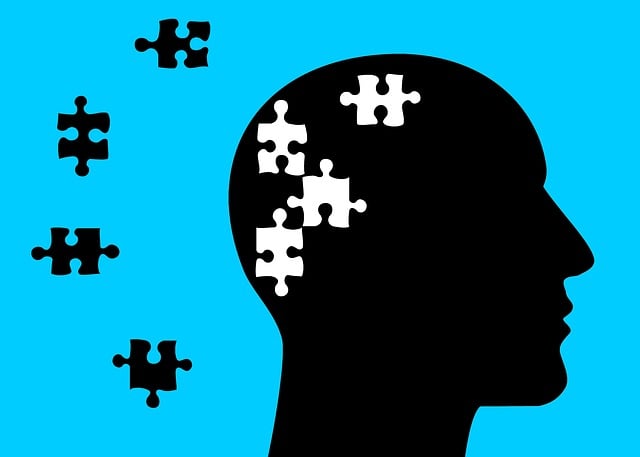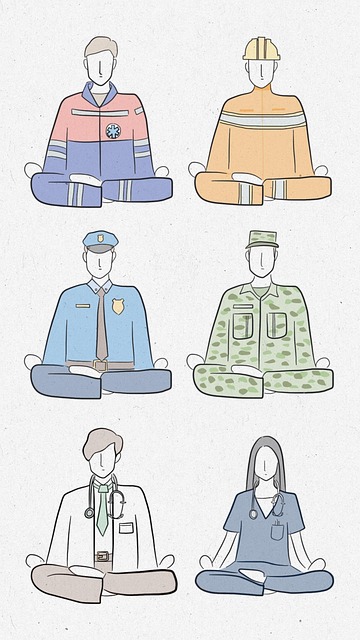Risk assessment is key in elderly care, focusing on physical and mental health hazards like grief and loneliness. Care providers can implement tailored strategies through Therapy for Elders and Grief Counseling, preventing mood disorders and enhancing overall well-being. These measures create safe spaces, reduce stigma around mental illness, foster social connections, and minimize risks associated with emotional deterioration in seniors. By integrating comprehensive risk management plans and harm minimization strategies, care facilities can improve mental health awareness and create nurturing environments for vulnerable elders.
In the realm of elderly care, risk assessment and harm minimization planning are paramount. This comprehensive guide delves into essential aspects such as identifying potential hazards and implementing effective risk management strategies. We explore specific techniques like grief counseling, which addresses emotional vulnerabilities among seniors, offering a holistic approach to enhance their well-being. By understanding these concepts, caregivers can create safer environments and provide better support for the unique needs of elderly individuals.
- Understanding Risk Assessment: Identifying Potential Hazards in Elderly Care
- Grief Counseling for Seniors: Addressing Emotional Vulnerabilities
- Harm Minimization Strategies: Practical Steps for Safe Environments
- Implementing Effective Risk Management Plans: A Holistic Approach to Elderly Well-being
Understanding Risk Assessment: Identifying Potential Hazards in Elderly Care

Understanding Risk assessment is a cornerstone in elderly care settings, enabling facilities to identify and mitigate potential hazards that could cause harm. These hazards can range from physical risks in living areas to emotional and psychological threats stemming from social isolation or cognitive decline. By systematically evaluating these risks, care providers can develop tailored strategies for prevention and intervention.
One critical aspect often overlooked is the mental health of elderly individuals, which can be exacerbated by stressors such as grief and loneliness. Offering therapy for elders and stress management workshops organized by the facility can serve as proactive measures against mood disorders. Similarly, grief counseling programs specifically designed for this demographic can significantly enhance their overall well-being and quality of life, thereby reducing potential risks associated with mental health deterioration. Effective risk management planning for mental health professionals involves integrating these interventions into the care framework to create a nurturing environment that addresses the holistic needs of elderly residents.
Grief Counseling for Seniors: Addressing Emotional Vulnerabilities

As seniors age, they often face unique challenges that can lead to profound emotional vulnerabilities. Grief counseling plays a crucial role in addressing these sensitivities, especially when dealing with the loss of loved ones or companions. Therapy for elders provides a safe space for them to express and process their grief, ensuring they receive the necessary support during this difficult time. This type of counseling is vital in helping seniors navigate their emotions, improving their overall emotional well-being promotion techniques.
The social skills training aspect of grief counseling can be particularly beneficial for seniors, fostering connections and reducing feelings of isolation. By engaging in these sessions, elders can learn healthy coping mechanisms and gain access to support networks. Moreover, mental illness stigma reduction efforts within these counseling programs encourage open dialogue about emotional struggles, creating an environment where seniors feel understood and empowered.
Harm Minimization Strategies: Practical Steps for Safe Environments

Harm Minimization Strategies play a pivotal role in creating safe and supportive environments, especially for vulnerable populations like elders. Practical steps involve implementing Emotional Well-being Promotion Techniques that foster open communication and provide accessible Therapy for Elders. By encouraging discussions about feelings and offering counseling services tailored to their needs, care facilities can significantly enhance the mental health awareness among residents.
Additionally, Mental Illness Stigma Reduction Efforts should be integrated into daily interactions. Training staff on compassionate listening and non-judgmental attitudes contributes to a culture of understanding and acceptance. These proactive measures not only promote emotional well-being but also encourage individuals to seek necessary support for various challenges they may face, ensuring a more inclusive and nurturing environment.
Implementing Effective Risk Management Plans: A Holistic Approach to Elderly Well-being

Implementing effective risk management plans is a holistic approach to ensuring the well-being of elderly individuals. In an aged population, where various health and social risks can compound, proactive strategies are essential. Risk assessment for seniors involves a comprehensive evaluation of physical, mental, and emotional factors, including cognitive decline, loneliness, and financial vulnerabilities. By identifying these risks early, care providers can implement tailored harm minimization plans.
A crucial component of this strategy is providing therapy for elders, such as grief counseling, to address psychological challenges. Furthermore, incorporating self-esteem improvement and stress reduction methods through various activities and support groups fosters a sense of purpose and resilience. Additionally, developing coping skills can help seniors navigate life changes and maintain their independence. These integrated approaches not only mitigate risks but also enhance the overall quality of life for elderly individuals.
Risk assessment and harm minimization planning are essential components of holistic elderly care. By understanding potential hazards, implementing practical safety strategies, and offering tailored therapy, such as grief counseling for seniors, we can create secure environments that support the well-being of our aging population. These proactive measures not only mitigate risks but also enhance the quality of life for elders, ensuring they can age with dignity and peace of mind.













